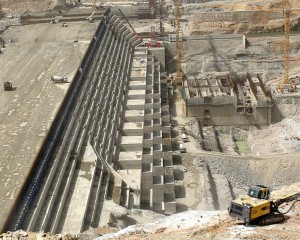Egypt Withdraws from East African Power Pool Over GERD Dam Concerns
 Egypt has pulled away from the East African Power Pool (EAPP) after refusing to sign a regional energy master plan due to concerns over the construction of hydropower projects along the Nile River – its only source of fresh water.
Egypt has pulled away from the East African Power Pool (EAPP) after refusing to sign a regional energy master plan due to concerns over the construction of hydropower projects along the Nile River – its only source of fresh water.
Egypt’s fears over the potential effects the construction of dams along the Nile will have on its water supply have long been established. Cairo has been particularly concerned over the construction of Ethiopia’s Grand Renaissance Dam (GERD).
Although Egypt is a member of the EAPP, established in 2005, the country has consistently expressed concerns over the organization’s master plan.
The 25-year master plan aims at creating an interconnected regional power supply to significantly boost the economies of member states.
Members of the EAPP include Burundi, the Democratic Republic of Congo, Ethiopia, Egypt, Kenya, Rwanda, Sudan, Tanzania, Uganda and Libya.
According reports, the master plan was signed during a recent three day meeting in Ethiopia’s capital Addis Ababa. The Council of Ministers from the ten member states officially adopted master plan despite Egypt’s boycott.
Lebi Changullah, the EAPP secretary-general, reiterated that member states will implement the plan despite Egypt’s opposition.
Changullah added that officials will address Egypt’s concerns, however, this will not stop the project from being implemented. He also stressed that Egypt already has a treaty with Nile-dependent countries on the equitable use of the river.
“Egypt’s concerns on the River Nile will be addressed by the Nile Initiative, but that will not stop countries from proceeding with their plans,” he noted.
The EAPP master plan is being funded by the World Bank, the African Development Bank, and the U.S. government. Member states are also sharing the financial responsibility of the plan.
The regional power integration plan includes the construction of transmission lines scheduled to be implemented between 2016 and 2017. The transmission lines are scheduled to be commissioned by 2020.